
Masood Khodadadi
Reader (Associate Professor) in Tourism, Culture and Society, University of the West of Scotland
Masood is a Reader (Associate Professor) in Tourism, Culture, and Society at the School of Business and Creative Industries, University of the West of Scotland (UK). His expertise encompasses cultural heritage, policy, and planning within tourism studies. With a multidisciplinary and interdisciplinary research profile, Masood has an extensive publication record in top-tier academic journals. He currently serves as the Associate Editor for the Ecotourism Section of the Journal of Frontiers in Sustainable Tourism and is a member of the editorial board of a number of prestigious journals.
In addition, Masood is the Associate Lead (Output) for UWS’s UoA24 REF (Research Excellence Framework) 2029 submission. In this role, he supports the UOA Lead in managing the peer-review process and leads the selection and preparation of research outputs. His commitment extends to nurturing staff success, fostering research development, and championing the open access agenda at UWS.
Professionally, Masood is affiliated with the Higher Education Academy and the British Institute of Persian Studies as a Fellow. Drawing from over a decade of hands-on experience in the hospitality and tourism industry, he has contributed his expertise to organisations such as Gleneagles, Hilton, and the G1 Group.
Additionally, Masood served as an invited expert judge on the second series of BBC's Scotland's Greatest Escape, further demonstrating his reputation and expertise within the tourism industry.
Area of academic expertise:
- Tourism and UNSDGs
- Tourism Policy & Planning
- Cultural/Heritage Tourism
- Responsible Tourism
- Regenerative Tourism
- Destination Marketing/Branding
Masood is currently working on a number of collaborative research project focusing on
- Destination Image
- Tourism and National Identity
- Heritage Tourism and Communities
Less ![]()
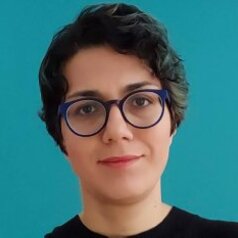
Masoumeh Mansouri
Associate Professor, School of Computer Science, University of Birmingham
Dr Masoumeh (Iran) Mansouri is an Associate Professorof in the School of Computer Science at the University of Birmingham. Her research is primarily related to Knowledge Representation and Reasoning for Robotics. She has focused on hybrid methods that integrate automated task and motion planning, scheduling, as well as temporal and spatial reasoning.
She is also interested in the ethical and social implications of technology in general and robotics/AI in particular; as well as topics at the intersection of cultural studies and robotics.
She also leads an interdisciplinary network initiative in Critical Cultural Robotics performing different research/network activities on the topic.
Less ![]()
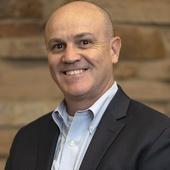
Massimo Ruzzene
Vice Chancellor of Research and Innovation, University of Colorado Boulder
Less ![]()
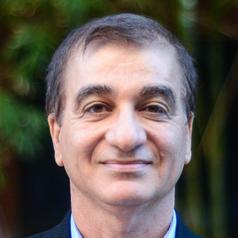
Massoud Pedram
Professor of Electrical and Computer Engineering, University of Southern California
Massoud Pedram is the Charles Lee Powell Chair in Electrical and Computer Engineering and Computer Science and Professor of Electrical and Computer Engineering the USC Viterbi School of Engineering. His research interests cover the areas of computer-aided-design (CAD) of VLSI circuits and systems with emphasis on developing methodologies and techniques for low power design, dynamic power management in electronic systems, smart battery technology and design, noise analysis and minimization in integrated circuits, and design flows and algorithms for unified RT-level synthesis and physical design.
Dr. Pedram obtained his B.S. degree in Electrical Engineering from the California Institute of Technology in 1986. Subsequently, he received M.S. and Ph.D. in Electrical Engineering and Computer Sciences from the University of California, Berkeley in 1989 and 1991, respectively. In September 1991, he joined the Ming Hsieh Department of Electrical Engineering of the University of Southern California where he currently is the Charles Lee Powell Professor of Electrical Engineering and Computer Science in the USC Viterbi School of Engineering. Dr. Pedram is a recipient of the IEEE Circuits and Systems Society Charles A. Desoer Technical Achievement Award (2015), the Presidential Early Career Award for Scientists and Engineers (1996), and the National Science Foundation's Young Investigator Award (1994). His research has received a number of other awards including two Design Automation Conference Best Paper Awards, a Distinguished Paper Citation from the Int'l Conference on Computer Aided Design, one Best Paper Award of the ACM/IEEE Int’l Symp. on Low Power Design and Electronics, three Best Paper Awards from the International Conference on Computer Design, one Best Paper Award of the IEEE Computer Society Annual Symp. on VLSI, an IEEE Transactions on VLSI Systems Best Paper Award, and an IEEE Circuits and Systems Society Guillemin-Cauer Award. Dr. Pedram was recognized as one of the four DAC Prolific Authors (with 50+ papers) and the DAC Bronze Cited Author at the 50th anniversary of the Design Automation Conf., Austin, TX (2013), received a Frequent Author Award (Top Three Author Award) at the 20th Anniversary Asia and South Pacific Design Automation Conference, Chiba/Tokyo, Japan (2015), and listed as the Second Most Prolific and Second Most Cited Author at the 20th Anniversary Int’l Symp. on Low Power Electronics and Design, Rome, Italy (2015).
Dr. Pedram has served on the technical program committee of a number of conferences and workshops, including Design Automation Conference (DAC), Design Automation and Test in Europe (DATE), Asia-Pacific Design Automation Conference (ASP-DAC), International Conference on Computer Aided Design (ICCAD), International Symposium on Low Power Electronics and Design (ISLPED), International Symposium on Physical Design (ISPD), and International Workshop on Logic Synthesis (IWLS). Dr. Pedram was a co-founder and general chair of the 1995 International Symposium on Low Power Design and the technical co-chair and general co-chair of the 1996 and 1997 International Symposium on Low Power Electronics and Design, respectively. He was the Technical Chair of the 2002 International Symposium on Physical Design and is the General Chair of the 2003 symposium. Dr. Pedram has given several tutorials on low power design at major CAD conferences and forums including, DAC, ICCAD, and ASP-DAC. He has published more than 600 journal and conference papers, written four books on various aspects of low power design, and holds 10 US patents.
Dr. Pedram is an IEEE Fellow and an ACM Distinguished Scientist. He served as an Associate Editor of the IEEE Transactions on Computer-Aided Design of Integrated Circuits and Systems and ACM Transcations on Design Automation of Electronic Systems. He received the 2000 Distinguished Service Award of ACM - SIGDA for contributions in developing the SIGDA Multimedia Monograph Series and organizing the Young Student Support Program. Dr. Pedram served on the Advisory Board of the ACM Special Interest Group on Design Automation from 2000 to 2009. He was also a member of the Board of Governors of the IEEE Circuits and Systems Society from 2000 to 2002, Chair of the Distinguished Lecturer Program of the IEEE CASS for 2003 and 2004, and the CASS VP of Publications in 2005 and 2006. Dr. Pedram, who is an ACM Distinguished Speaker , currently serveas the Editor-in-Chief of the ACM Transactions on Design Automation of Electronic Systems (TODAES) and the IEEE Journal on Emerging and Selected Topics in Circuits and Systems (JETCAS).
Less ![]()
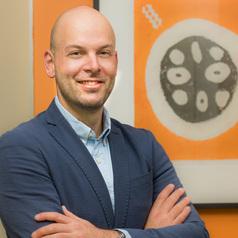
Matevz (Matt) Raskovic
Associate Professor of International Business & Strategy, Auckland University of Technology
I am an Associate Professor of International Business & Strategy at AUT and a visiting professor at Zhejiang University in China. I also hold the position of Vice-President Administration at the Academy of International Business. I was a Fulbright Fellow at Harvard University, FAS Sociology.
Less ![]()
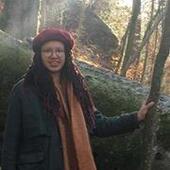
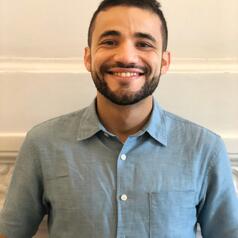
Matheus de Oliveira Pereira
Pesquisador do INCT – INEU e do GEDES, Universidade Estadual Paulista (Unesp)
Doutor em Relações Internacionais pelo Programa de Pós-Graduação San Tiago Dantas (PUC-SP, UNESP, UNICAMP). Realizou estágio de pesquisa no exterior junto ao Center for Latin American and Latino Studies da American University/EUA (2019-2020), com bolsa CAPES-PRINT, e à Universidade de Buenos Aires/ARG (2015). Pesquisador do Instituto Nacional de Ciência e Tecnologia para Estudos sobre os Estados Unidos (INCT-INEU), do Grupo de Estudos de Defesa e Segurança Internacional (GEDES - UNESP) e do Instituto de Estudos Econômicos Internacionais (IEEI-UNESP). Tem interesse nos temas: Política Externa da Argentina, Relações Interamericanas, Autonomia Desenvolvimento Econômico, Defesa e Política Latino-Americana. Em 2017, recebeu o prêmio de Melhor Dissertação de Mestrado da Associação Brasileira de Relações Internacionais. Em 2013, recebeu o prêmio de Melhor Artigo de Iniciação Científica da Associação Brasileira de Estudos de Defesa. (
Less ![]()

Mathew Clement
Research Fellow at the School of Medicine, Cardiff University
PhD Medicine, Cardiff University 2013
BSc Biomedical Science, University of Wales Institute Cardiff, 2001
I am a Research Fellow joint supported by the Wales Cancer Research Centre and the Systems Immunity Research Institute studying the role of immune cell biology during Glioblastoma and other brain cancers, working with Professor Awen Gallimore within the Division of Infection & Immunity, School of Medicine
I was previously a Research Asscoiate working with Professor Ian Humphreys in the Humphreys Research laboratory within the Division of Infection & Immunity, School of Medicine under the theme of Persistent and Resistant Infections. I was also a member of the Viral Immunology research group within the Division.
Currently my research examines what role immune cells, particularly T-cells, play during Glioblastoma (GBM). I am interested in examing how we can design novel treatments for this fatal disease which is one of the most poorly survived cancers. There are no effective therapies for GBM with survival rates of between 12 to 15 months, thus the work we do aims to address this problem and make key step changes in our understanding of the interface between the immune system and the brain tumour.
Less ![]()
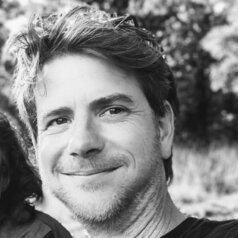
Mathew Herrnegger
Senior Scientist, Institute of Hydrology and Water Management, University of Natural Resources and Life Science (BOKU)
Mathew Herrnegger obtained his degree in Water Management and
Environmental Engineering in 2007 and his Ph.D. in Hydrology in 2013. He
is a Senior scientist at the Institute of Hydrology and Water Management
(HyWa), University of Natural Resources and Life Sciences, Vienna. His
lecturing and research interest covers a broad range of water-related
topics, ranging from catchment hydrology to water resources management.
He has worked and (co-)authored papers on the water balance, flood and
inflow forecasting systems, model development and parameter estimation
of distributed hydrological models, machine learning, remote-sensing
hydrology, climate change impact assessments on water resources,
assessment of changes and drivers of flood risks, but also water quality
and uncertainties in erosion modelling. In East Africa, he has worked in
the Mara, the Sio-Malaba-Malakisi River Basin in the border between
Kenya and Uganda and Lake Bunyoni in the south west Uganda. Lately, his
research interest lies in understanding the lake level rises in the Rift
Valley lakes of Kenya and since 2021 he is also involved in the project
"Sustainable water quality management supporting Uganda’s development
ambitions".
Less ![]()
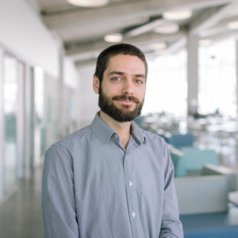
Mathew Iantorno
Doctoral Candidate in Information, University of Toronto
I am currently a doctoral candidate within the Faculty of Information at the University of Toronto. Between my MA and my PhD, I worked as a research communications and web accessibility specialist in higher education.
Less ![]()
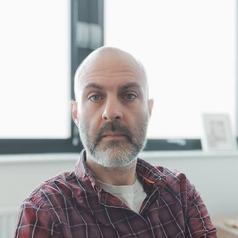
Mathew Johnson
Senior Lecturer in Employment Studies, University of Manchester
Mathew Johnson is a senior lecturer in Employment Studies based in the Work and Equalities Institute at The Alliance Manchester Business School, University of Manchester. Mat’s research interests include comparative employment relations, the changing nature of work in cities, and the role of the state in shaping employment standards.
Less ![]()
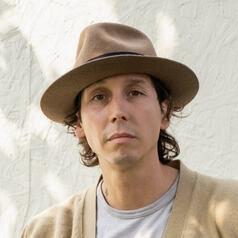
Mathew Sandoval
Associate Teaching Professor in Culture & Performance, Arizona State University
Dr. Sandoval is an Associate Teaching Professor at Barrett the Honors College in Downtown Phoenix. He is also an ASU Social Transformation Lab Fellow and a member of ASU's Chicano /Latino Faculty & Staff Association. Dr. Sandoval holds a PhD in Culture & Performance from UCLA, an MA in Individualized Study with a focus on Performance Studies from NYU, and a BA in English with a focus on Performance at the University of Nevada Las Vegas.
Dr. Sandoval is currently researching the transborder holiday Dia de los Muertos (Day of the Dead). He focuses on the holiday's popular history of the holiday as it has circulated in mass media, art exhibitions, tourism, and cinema. He also conducts ethnographic research on large-scale public celebrations of the holiday in Mexico and the US Southwest in order to examine the ways the holiday has developed from ancient Mesoamerican ritual to mass media spectacle. His research analyzes issues of performance, transnationalism, interculturalism, race, hybridity, indigeneity, spirituality, and cultural appropriation & commodification. Furthermore, he writes about the way Day of the Dead intersects with his experiences coming of age as a working-class mixed-race Chicano.
Less ![]()
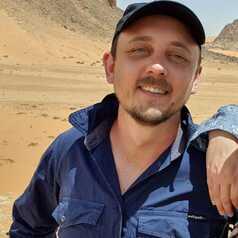
Mathew Stewart
Research Fellow, Australian Research Centre for Human Evolution, Griffith University
Zooarchaeology, palaeontology, palaeoecology, proteomics, human and animal dispersals, drylands
Less ![]()
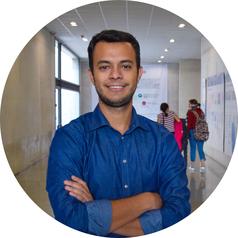
Mathias-Felipe de-Lima-Santos
Lecturer, Macquarie University
Mathias-Felipe de-Lima-Santos (Ph.D.) is a Lecturer (aka Assistant Professor) at Macquarie University. He is also a research associate in the Digital Media and Society Observatory (DMSO) at the Federal University of São Paulo (Unifesp), Brazil. Previously, he was a postdoctoral researcher in the Human(e) AI and AI4Media projects at the University of Amsterdam, Netherlands and a researcher at the University of Navarra, Spain, under the JOLT project, a Marie Skłodowska-Curie European Training Network funded by the European Commission’s Horizon 2020. He was also a Visiting Researcher at the Queensland University of Technology (QUT) in Brisbane, Australia. Mathias-Felipe is co-editor of the book “Journalism, Data and Technology in Latin America” and the two-volume book “Fact-Checking in the Global South” both published by Palgrave Macmillan. Mathias-Felipe is currently part of the editorial board of Digital Journalism. His research interests include the changing nature of communications driven by technological innovations, particularly in journalism, media, and online social networks.
Less ![]()
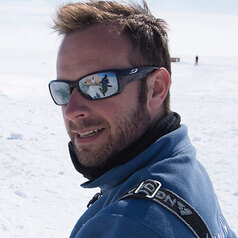
Mathieu Ardyna
Researcher at International Research Laboratory Takuvik, Université Laval
Mathieu Ardyna is a biological oceanographer interested in understanding phytoplankton dynamics in polar environments. My main research focuses on how environnemental drivers and changes are altering phytoplankton phenology, productivity and structure. In both polar regions (i.e., the Arctic and Southern oceans), climate change is drastically affecting the interplay between the atmosphere, the cryosphere and the oceans.
Less ![]()
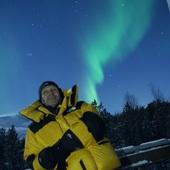
Mathieu Barthélemy
Professeur, directeur adjoint du CSUG, directeur scientifique de la MPLS en Alpes Dauphiné, Université Grenoble Alpes (UGA)
Less ![]()
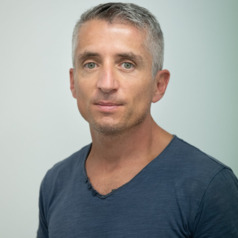
Mathieu Epardaud
Research Associate, Inrae
Immunologist specialized in immunotherapies and vaccinology, Mathieu Epardaud joined the BioMAP team of UMR ISP 1282 University – INRAE in 2018 to contribute to the development of anti-cancer immunotherapies and develop strategies for mucosal vaccine platforms.
He previously contributed to research on (1) preclinical model for studying the immunopathology of tuberculosis in the same UMR, (2) cancer immunotherapy at the Dana Farber Cancer Institute & Harvard Medical School (Boston) and ( 3) systemic vs mucosal immune response at the INRAe (Jouy en Josas).
Mathieu Epardaud participates in the vaccine development project and is one of the founders in January 2022 of the start-up LoValTech, for which he holds a position of scientific consultant, in particular for the development of the intranasal delivery system.
Less ![]()
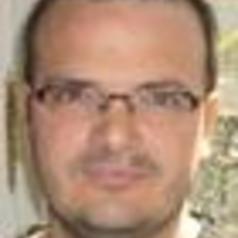
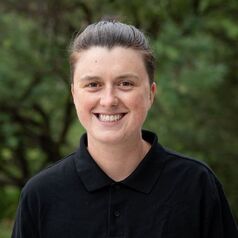
Mati Keynes
McKenzie Postdoctoral Research Fellow, The University of Melbourne
Dr Mati Keynes is an historian and social researcher. Their research explores how societies use education to grapple with historical injustices, in comparative and transnational context.
Less ![]()

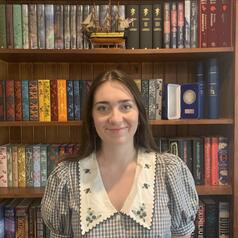
Matilda Hatcher
PhD Candidate, Australian National University
I am a current PhD candidate at the ANU, specialising in the history of masculinity in the British Royal Navy. Last year I completed an Honours Thesis focussing on masculinity and representations of disabled sailors, which was well received and awarded the ANU University Medal. My current project involves looking at masculine emotion and war experience in the Royal Navy during the French Revolutionary and Napoleonic Wars. I will be presenting on this topic at a conference on the history of emotions later this year.
Less ![]()

Matilde Rosina
Assistant Professor in Global Challenges, Brunel University London
Dr Matilde Rosina is Lecturer at Brunel University London and Visiting Fellow at the London School of Economics. An expert on migration and asylum matters, she obtained her PhD from King's College London, winning the King’s Outstanding Thesis Prize. She is the author of ‘The criminalisation of irregular migration in Europe’ (Palgrave Macmillan, 2022).
Less ![]()
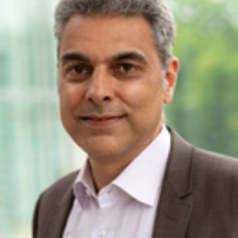
Matin Qaim
Director, Center for Development Research (ZEF), University of Bonn
Matin Qaim is a food systems and development economist with a doctoral degree in agricultural economics from the University of Bonn (2000). Before joining the Center for Development Research (ZEF) in 2021 he was Professor of International Food Economics and Rural Development at the University of Goettingen (2007-2021), Professor of International Agricultural Trade and Food Security at the University of Hohenheim (2004-2007), and postdoctoral scientist at the University of California at Berkeley (2001-2003).
Qaim has research and project experience in Europe, the USA, and numerous countries of Africa, Asia, and Latin America. Much of his research focuses on sustainable food systems, agricultural development, and the reduction of poverty, hunger, and malnutrition. He has over 250 academic publications, mostly in top disciplinary and interdisciplinary science journals, including Science, various Nature and Lancet Group Journals, and PNAS. He has been recognized as "Highly Cited Researcher" in 2021 and 2022.
Qaim is member of the German National Academy of Sciences (Leopoldina), Fellow of the American Agricultural and Applied Economics Association (AAEA), and President-Elect of the International Association of Agricultural Economists (IAAE). He has served on different high-level expert committees, including for the Global Panel on Agriculture and Food Systems for Nutrition, FAO, the International Maize and Wheat Improvement Center (CIMMYT), the European Commission, The Royal Society, and the German Federal Government and Parliament.
Less ![]()
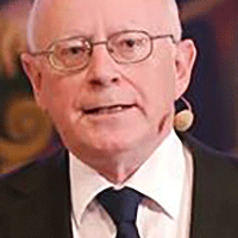
Mats Larsson
Professor of molecular physics, Stockholm University
Mats Larsson is Professor of Physics at Stockholm University and director of the AlbaNova University Center in Stockholm, which is a joint scientific center between the Royal Institute of Technology (KTH) and Stockholm University. He serves on the Nobel Committee for physics since 2016. His research interests are laboratory astrophysics and its importance to astrochemistry, free electron laser research targeting small molecules, and, more recently, molecular chirality and chiral interaction. He chairs a Nobel Symposium on Chiral Matter during 2020, with Dmitri Kharzeev as one of the co-chairs.
Less ![]()

Matshidiso Valeria Sello
Researcher, Centre for Social Development in Africa,, University of Johannesburg
Less ![]()
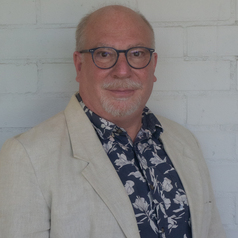
Matt Balogh
Adjunct Lecturer, University of New England
Matt Balogh is currently an adjunct lecturer at the University of New England where he is completing his PhD.
Matt was previously a social and media researcher, having been Managing Director of McNair Research from 2001 to 2018. Previous to that, Matt was Vice President of The Gallup Organisation, and prior to that, Group Marketing Services Manager at News Ltd.
Less ![]()
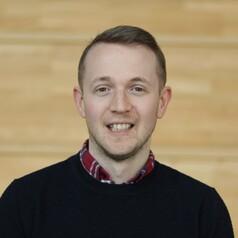
Matt Brooks
Senior Lecturer in Forensic Psychology, Manchester Metropolitan University
Matt Brooks, Ph.D., is a Senior Lecturer in Forensic Psychology at Manchester Metropolitan University, UK. Dr. Brooks’ work seeks to understand how strengths-based concepts such as posttraumatic growth can be used to enhance wellbeing in people who are exposed to adversity, with a particular interest in those who have experienced interpersonal violence. He has engaged in research and evaluations with criminal justice organisations, health providers, and local authorities, and has previously worked with young people in secure residential settings. Dr. Brooks’ work on posttraumatic growth has been published in international journals and quoted by the international media.
Less ![]()
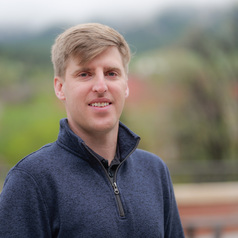
Matt Burgess
Assistant Professor of Environmental Studies, University of Colorado Boulder
I am an Assistant Professor of Environmental Studies, an affiliate faculty in Economics, a Fellow of the Cooperative Institute for Research in Environmental Sciences, and the Director of the Center for Social and Environmental Futures, at the University of Colorado Boulder. My academic training is a mixture of ecology and economics. I received my Ph.D. in 2014 at the University of Minnesota in Ecology, Evolution and Behavior, where I supplemented my training with graduate coursework in Applied Economics. My research focuses on economic growth futures and their impacts on the environment and society, mathematical modeling of human-environment systems, and political polarization of environmental issues.
Less ![]()
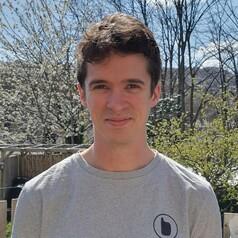
Matt Burke
WTW Research Fellow, University of Oxford
Matt Burke is the WTW Research Fellow in the University of Oxford's Sustainable Finance Group. His research focuses on pricing climate and environmental risks.
Less ![]()
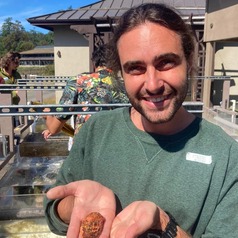
Matt Clements
PhD Student, University of Sydney
Matthew Clements is PhD student working closely with Professor Maria Byrne in her Marine and Developmental Biology lab at the University of Sydney. He is interested in the ecology of crown-of-thorns starfish throughout their entire life history; from larvae to adult. Echinoderms have had centre stage in his research career to date spanning topics of asexual reproduction, salinity tolerance of the larvae, juvenile-adult interactive behaviour and field based adult population demography and ecology. One Tree Island Research Station, the University’s facility on the Great Barrier Reef, provides a stunning coral reef system to delve into a marine biology career and an exciting place to continue exploring important topics in echinoderm biology.
Less ![]()
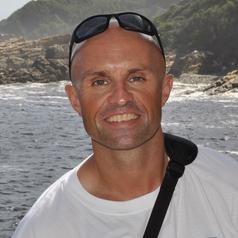
Matt Dicken
Adjunct Professor of Marine Biology, Nelson Mandela University
Matt Dicken is the head of research and monitoring at the KwaZulu-Natal Sharks Board and an adjunct professor at the Institute for Coastal and Marine Research (CMR), Ocean Sciences Campus, Nelson Mandela University in Gqeberha, South Africa.
He has over 20 years of senior management and lecturing experience in the fields of marine conservation, ecology and fisheries management.
His extensive experience of developing and implementing research projects focuses on better understanding the ecology of oceans with a specific focus on fisheries and the socioeconomics of marine tourism.
He is a nationally rated C2 scientist with over 40 peer reviewed publications.
At the KwaZulu-Natal Sharks Board research department, he is responsible for the strategic vision, management, policy formulation and cost-effective budget control.
He is also a visiting researcher at the School of Biological and Marine Sciences, University of Plymouth, United Kingdom.
Less ![]()
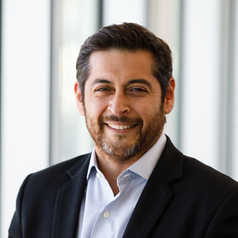
Matt Fernandez
Senior lecturer and researcher in chiropractic, CQUniversity Australia
Matt Fernandez is a registered chiropractor with over 20 years experience and senior lecturer within the Discipline of Chiropractic at CQUniversity, in Brisbane, where he teaches into the both undergraduate and masters component of the clinical chiropractic program. Matt earned his PhD at the University of Sydney and now directs his research efforts into patient education, exercise and physical activity promotion within chiropractic
Less ![]()
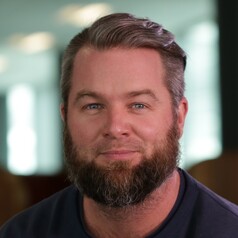
Matt Halliday
Lecturer in Advertising and Brand Creativity, Auckland University of Technology
Lecturer in Te Kura Whakapaho (School of Communications) at AUT. An early career academic trying to get the creative industries to help solve the world's wicked problems.
I teach Advertising and Brand Creativity and love helping students use their creativity for a good cause.
Less ![]()
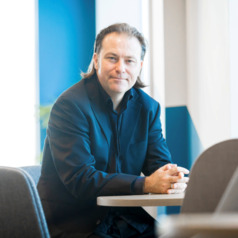
Matt Hopkins
Associate Professor in Criminology, University of Leicester
Matt is an Associate Professor at the Department of Criminology, University of Leicester. His research spans of variety of areas in relation to violence, organised crime, security and crime prevention. He has conducted research for the UK Home Office exploring motivations for the use of acid and corrosive substances in violent crime. He is the lead author (with Dr Lucy Neville and Professor Teela Sanders) of Acid Crime: Context, Motivation and Prevention (Palgrave Macmillan, 2021).
Less ![]()
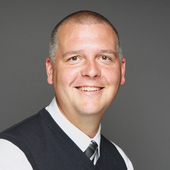
Matt Huml
Associate Professor of Sport Administration and Doctoral Program Coordinator, University of Cincinnati
Less ![]()
- Market Data




















